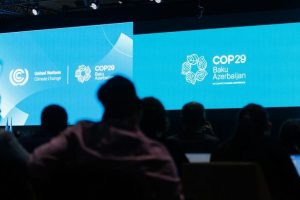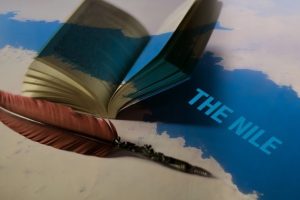BY JEFF PEARCE
It’s time to take the fight in new directions. The TPLF have brazenly broken the ceasefire, and despite the scandal over their ruthless theft of 12 fuel tankers—condemned by even U.S. officials and the UN—the Western media keeps playing their game. BBC World Service chose to completely ignore the fuel heist on its channel’s broadcasts and ran with the Mekelle air strike. Al Jazeera doesn’t give a damn if it uses a photo from last year to illustrate a story about this year’s raid. Shameless. And business as usual.
So, can we be honest about things here? Let’s get real. As much as folks are re-using #NoMore, a hashtag is not a strategy. Merchandise and T-shirts are not the struggle. One or two protests won’t cut it. The #NoMore movement is pretty much on life support, and you can resurrect the hashtag all you like—hey, bless ya and go with God—but the fact of the matter is that for all intents and purposes, the campaign itself is practically dead. Let me explain why.
Part of that is due to deliberate sabotage which nobody could predict; the other part is the way the campaign itself evolved.
First, the sabotage; you had the Western mainstream media and conflict merchants such as William Davison of Crisis Group who disingenuously sought to portray #NoMore as an Ethiopian government initiative when it was nothing of the kind. While I was not part of it, I spoke to a couple of its founders on how it developed, was occasionally consulted myself by a few of its activists, so yeah, I can attest that this notion was ridiculous. #NoMore was founded by several people, some who, for reasons of their own, have stayed behind the scenes. But two of its top founders, Nebiyu Asfaw and Simon Tesfemariam, got evicted from Twitter, which robbed us in many ways of their brilliant counsel, though they both pop up now and then at demonstrations and on videos. They can never be completely robbed of their voices.
Unfortunately, the campaign has also devolved into a personality cult for one individual who seems dedicated to minimizing the Amhara Genocide and who has been prepared to smear anyone who challenges their “authority.” No one should have that kind of power, ever.
And if you can’t handle that simple truth or think it’s “too divisive,” I say you’re living in la-la-land. I have no desire to get into that ugly feud again because it does distract, but neither will I roll over for the sake of “unity”—so don’t ask me to. I don’t see that individual busting their ass to accommodate unity by adjusting their position. If we can have pro-Abiy and anti-Abiy online warriors fighting for the same goal of ridding Ethiopia of the TPLF, I’ll have my say, thanks. The simple truth is this:
What should not be open for debate—ever—is the minimizing of the targeted slaughters of a whole ethnicity, in this case, the Amhara people. Because what are we really fighting for, if not to keep people safe first?
And as I’ve written elsewhere, acknowledging this genocide does not take away from advocating for a strong and united Ethiopia. As one activist put it to me in a phone conversation, when Amhara are massacred, “This is our pain, too.”
But let’s move on. #NoMore has also floundered—through nobody’s fault—because it was developed along the Black Lives Matter model. This made perfect sense months ago. A franchise deal. Let it develop where each diaspora or ally community decides it should go. Well, that’s fine if you’re in Addis or even in Chicago, but if you’re out in Kampala or in Accra, different story.
A thoughtful Ugandan activist told me how at one point, he was putting in something like “90 percent” of his time on the struggle for Ethiopia, but for him, just as for the rest of his fellow Ugandans, there is no great payoff waiting in the tangible sense. What’s in it for Ugandans or Kenyans or folks in say, Botswana, besides that possible existential victory in the greater geopolitical sense? That would be great, wonderful, but hey, remember, people have lives. They have jobs.
You need to give them goals they can believe in where their nations get something out of it, too.
And sadly, despite #NoMore’s admirable efforts to stop toxic Western media narratives and disinformation, it was a campaign that largely involved one-way traffic from Africa to Europe and North America. There wasn’t much collaboration or cross-talk within Africa itself.
Because keep in mind, when we fight on the “second battlefield” of mainstream and social media, the enemy owns the battlefield. Twitter, Facebook, Instagram, YouTube are all U.S. companies that work with (and routinely hire!) professionals from the U.S. security establishment: NSA, CIA, etc. Every day, seven days a week, I know Twitter is screwing with my account, scraping away scores of followers to limit my influence—even their own records show this blatant abuse. And they do this to an untold number of other pro-Ethiopia accounts. So, #NoMore activists have done the best they can, but it’s the enemy’s battlefield.
And a fantastic opportunity was missed, both strategically and tactically. The original heroes of independent Africa and Pan-Africa movements, like Steve Biko, Jomo Kenyatta and others, understood they needed to rely on what they had and what the enemy didn’t have. They relied on certain methods and on starting dialogues where the Neocolonialists didn’t have a clue what was going on, using the arrogance and ignorance against them.
We need to be smarter. We need to be nimble and fight with different weapons, tactics and ideas.
And as I said in a recent interview, if these clowns want to slander an activist campaign as the puppet of a single government, well, let’s see them try to bring that charge against a whole continent.
That’s why I believe there needs to be a new movement, one broader in scope that brings together African intellectuals, authors, artists, and activists who can provide us with multiple perspectives and new tools, fresh blood and new energy. For now, I refer to it as the “Family of Africa” movement, but someone else can always think of a better name. What matters is the work that needs to be done.
While Ethiopia’s liberation from the TPLF and its Western allies would be one priority, let’s bring together Africans to work on goals that offer tangible payoffs for everyone.
For instance, as I write this, Japan’s Prime Minister Fumio Kishida told the Tokyo International Conference on African Development in Tunis that he’ll push for “an African seat” on the permanent insiders’ club of the UN Security Council.
How nice. Well, you can either choose to believe this notion is sincere, or that it’s a rather cynical ploy to curry favor as different powers realize Africa is crucial in the new Cold War.
But again, let’s be real. The momentum for such a seat should come from Africans. It shouldn’t be a sop handed out by others.
Remember, Europe has two permanent seats on the council, the UK and France—three if you want to recognize Russia as “European” and ignore it’s also in Asia (but then we might go down the rabbit hole over how ridiculous it is to even consider the European peninsula a continent).
Frankly speaking, Africa should have three seats at the table, with Ethiopia getting one of them. One seat alone will not stop the Americans and the EU from trying their “destabilization game” again with another African country; the U.S. can always find a way to strong-arm Britain or France or that “token” African nation. But with three African permanent seats, you have the potential for a new game-changing bloc that defies undue influence.
So that’s one priority. This movement could also start a massive lobbying campaign to fight the “Gulag Africa” policies of the West. Because it’s high time North America and Europe stopped treating Africans as criminals, using racist policies and visa restrictions to bar them from conferences, vacation trips, and the normal kind of migration that’s taken for granted every day by people of my color and ethnic origins.
And still another priority can be that dream of a global Pan-African television news network, a T-Rex in the media that can negate CNN, BBC, and Al Jazeera; a network that tells African stories by Africans for Africans.
All these things are possible, doable and obtainable. And so are other goals put forward by leaders of this new movement. I have already reached out and spoken with a handful of academics and activists, and I want to find and meet more.
We say and write all the time that by saving Ethiopia, we’ll save Africa. But we need to do a better job of involving the rest of Africa and enfranchising brilliant African minds into the struggle. Making connections and building on our gains.
As corny as it may sound, Africa is a vast family, and it’s time for a major family reunion. And you will always defend your family with more will and resolve than anything else.
The Ethiopian herald September 1/2022





